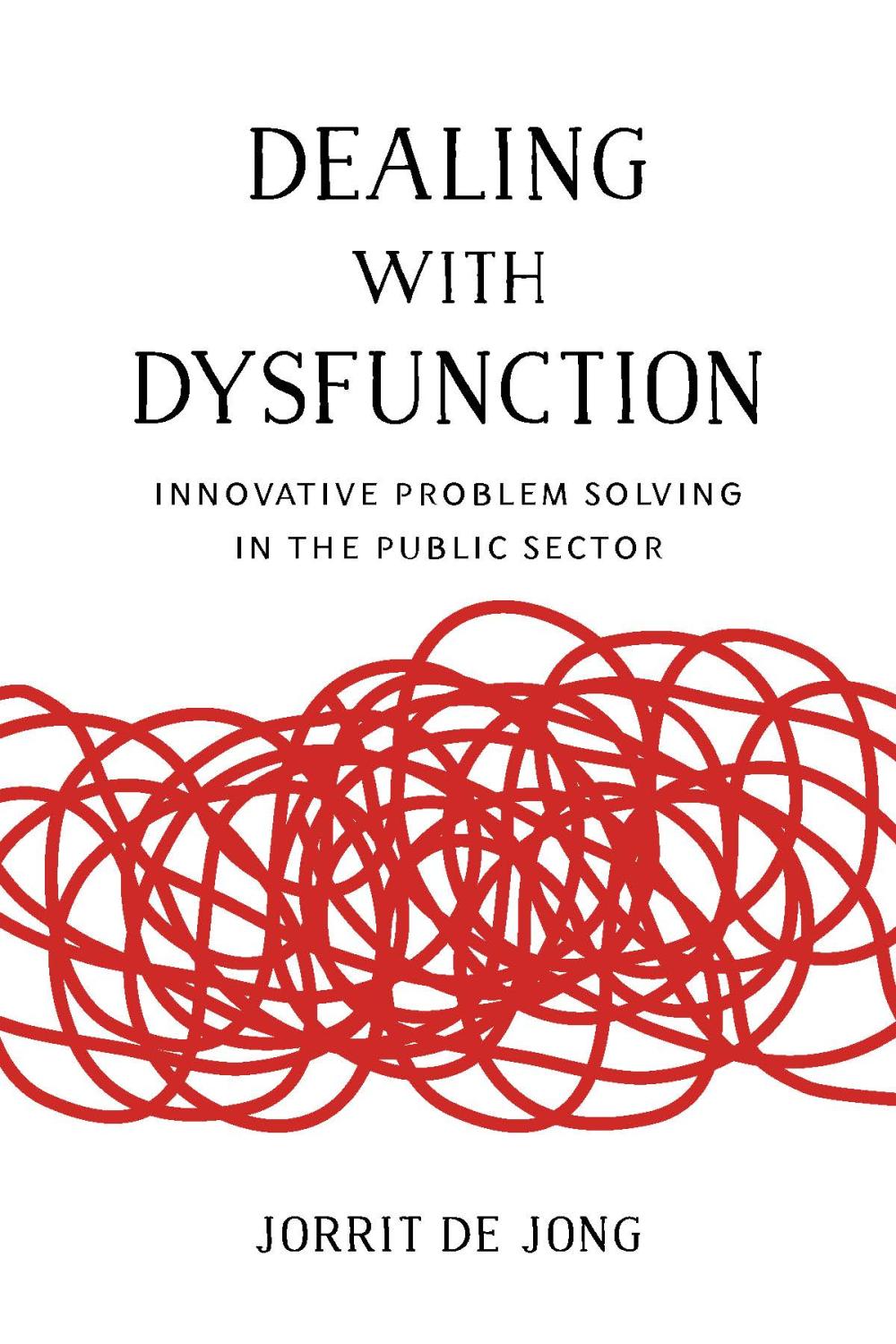


Book
How can we intervene in the systemic bureaucratic dysfunction that beleaguers the public sector? De Jong examines the roots of this dysfunction and presents a novel approach to solving it. Drawing from academic literature on bureaucracy and problem solving in the public sector, and the clinical work of the Kafka Brigade — a social enterprise based in the Netherlands dedicated to diagnosing and remedying bureaucratic dysfunction in practice, this study reveals the shortcomings of conventional approaches to bureaucratic reform. The usual methods have failed to diagnose problems, distinguish symptoms, or identify root causes in a comprehensive or satisfactory way. They have also failed to engage clients, professionals, and midlevel managers in understanding and addressing the dysfunction that plagues them. This book offers conceptual frameworks, theoretical insights, and practical lessons for dealing with the problem. It sets a course for rigorous public problem solving to create governments that can be more effective, efficient, equitable, and responsive to social concerns.
De Jong argues that successfully remedying bureaucratic dysfunction depends on employing diagnostics capable of distinguishing and dissecting various kinds of dysfunction. The “Anna Karenina principle” applies here: all well-functioning bureaucracies are alike; every dysfunctional bureaucracy is dysfunctional in its own way. The author also asserts that the worst dysfunction occurs when multiple organizations share responsibility for a problem, but no single organization is primarily responsible for solving it. This points to a need for creating and reinforcing distributed problem-solving capacity focused on deep (cross-)organizational learning and revised accountability structures. Our best approach to dealing with dysfunction may therefore not be top-down regulatory reform, but rather relentless bottom-up and cross-boundary leadership and innovation. Using fourteen clinical cases of bureaucratic dysfunction investigated by the Kafka Brigade, the author demonstrates how a proper process for identifying, defining, diagnosing, and remedying the problem can produce better outcomes.
Related Books

Robert D. Behn
June 24, 2014

Hollie Russon Gilman
January 26, 2016

Sandford F. Borins
June 5, 2014
De Jong, whose original perspectives on the public sector have already attracted wide attention, has written a thoughtful and highly readable book that should be required reading for officials at all levels who want to tackle their own situations of bureaucratic dysfunction, but don’t know quite where to start.—John Alford, Professor of Public Sector Management, Australia and New Zealand School of Government
Drawing on all-too-recognizable examples of how citizens experience official dysfunction, this book provides a wonderfully engaging overview of theories of bureaucracy, along with accounts of how bureaucratic failures can be remedied. Highly recommended.—Geoff Mulgan, CEO, National Endowment for Science, Technology and the Arts (NESTA), United Kingdom
De Jong has successfully taken on a conceptually knotty and practically important problem: in the bureaucratic tangles that seem so absurd from one perspective lie the unresolved conflicts of important public values which we citizens would like to see realized in government operations. Because different public agents defend specific dimensions of public value, the solution, he finds, lies not in some general, sweeping reform, but in the close examination of specific instances of bureaucratic dysfunction resolved
through collaborative design efforts.—Mark Moore, Professor of Public Policy, Harvard Kennedy School
There is nothing so practical as a good theory: as Ombudsman, I deal with complaints about government. De Jong’s ideas and analytic tools serve as a compass for diagnosing the root causes as well as a road map for continuous improvement. An invaluable contribution!—Arre Zuurmond, Ombudsman, Greater Amsterdam Area, The Netherlands
Real world complexities can twist attempts at reform into adverse or even perverse outcomes. Professor de Jong identifies this “bureaucratic dysfunction” and explores a unique synthesis of theory, research, and practice to offer a systematic guide for diagnosis and correction. Policy professionals will find this both fascinating and useful.—Peter Wallace, City Manager, City of Toronto, Canada
Authors
Jorrit de Jong is Lecturer in Public Policy and Management at Harvard Kennedy School (HKS). His research and teaching focus on the challenges of making the public sector more effective, efficient, equitable and responsive to social needs. Jorrit is the Faculty Director of the Bloomberg Harvard City Leadership Initiative, a joint program of Harvard Business School and Harvard Kennedy School, funded by and executed in collaboration with Bloomberg Philanthropies. Dr. De Jong is also Academic Director of the Innovations in Government Program at the Kennedy School’s Ash Center for Democratic Governance and Innovation and cofounder of the Kafka Brigade, an action research organization investigating excessive bureaucracy.